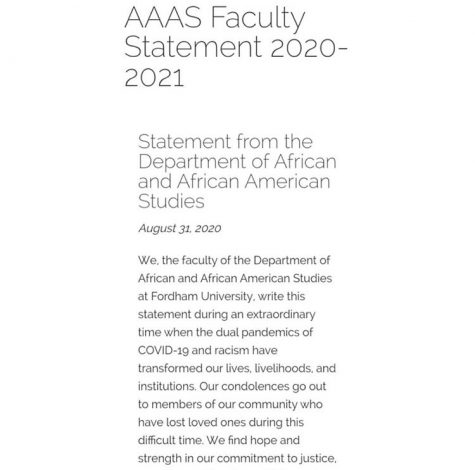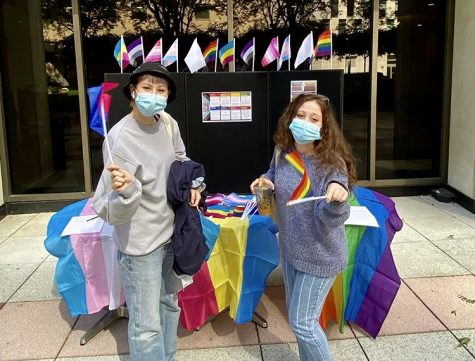Elizabeth Hinton Lectures About Criminalization, Inequality and the Stakes of 2020
Hinton has worked with the National Network for Safe Communities, the NAACP Legal Defense Fund, the Vera Institute of Justice and other law enforcement and crime control institutions. (Courtesy of Twitter)
November 4, 2020
The department of American studies hosted Elizabeth Hinton of Yale Law School for the final lecture of their Election 2020 Lecture Series on Oct. 29. The lecture drew a crowd of 120 people with the topics of Criminalization, Inequality and the Stakes of 2020.
“[Hinton is] considered one of the nation’s leading experts on the history of criminalization and mass incarceration, Hinton is often called upon to share her expertise on matter related to crime control policy, law enforcement and racism,” said Christopher Dietrich, head of Fordham’s American studies department and the coordinator for the lecture series.
She has worked with the National Network for Safe Communities, the NAACP Legal Defense Fund, the Vera Institute of Justice and other law enforcement and crime control institutions at all levels to broaden the terms of debate and inform effective policy choices. Her book, “From the War on Poverty to the War on Terror” has won important awards and was listed by O Magazine as one of its “Books to Better Understand the History of Racism in America.”
Hinton made the argument in her lecture that we need to look at the violence that has emerged in the form of riots as a response to the wrongs and harm toward minorities in America, instead of looking at them as meaningless violence.
“For the tens of thousands of Black Americans who participated in this collective violence were rebelling against past wrongs, past harms and the system that preserved unequal conditions over the generations,” she said.
Hinton furthered this argument by talking about President Lyndon B. Johnson’s series of policies on the War on Crime, which she calls “one of the biggest public policy failures.”
With the federal government giving large amounts of money to the police instead of social programs in low-income areas, they gave police tools for a domestic enemy that Hinton said never existed in the first place.
“If government authorities are unwilling to protect Black residents from police brutality, then self-defense, politics that Black Americans had adopted historically under white terrorism and government complacency, was seen as a rational alternative,” said Hinton.
To Black Americans, this has been seen as the only way to get government officials’ attention and to bring to light the issues surrounding their communities. Hinton said the movement dates back to when enslaved Americans would rebel by running away, up until the Black Lives Matter movement that we saw pick up momentum over the summer with the death of George Floyd.
Hinton concluded her argument by talking about how we need to work to create a world where people don’t have to rebel to create lasting change, one where we dismantle racist ideas or else we will continue to face these issues.
Hinton talked about the ideas of abolishing or defunding the police, which has become a big issue on the ballot for Nov. 3.
“Back in the ’60s, I think we made the wrong set of investments in law enforcement and prisons, and I think now it’s time to try a different set of investments based on prevention,” said Hinton.
Hinton also discussed current events over the past few weeks and their relation to structural racism in American society. She talked about the Supreme Court and how the nomination and subsequent confirmation of Justice Amy Coney Barrett plays into how the Supreme Court rules on structural racism.
She spoke about the history of the Supreme Court and how its rulings have made it close to impossible to prove that racism or discrimination exists, and how, based on Justice Amy Coney Barrett’s past rulings, this trend is likely to continue.
Dietrich said that in general, the 2020 Election Lecture Series invited the Fordham community to consider topics that are crucial to the United States’ present and future.
“When American studies planned the lecture series, we knew that we wanted speakers that could discuss the issues most pertinent to our student’s lives and politics in the United States … The 2020 Election Lecture Series did just that,” Dietrich said.











If you want a picture to show with your comment, go get a gravatar.